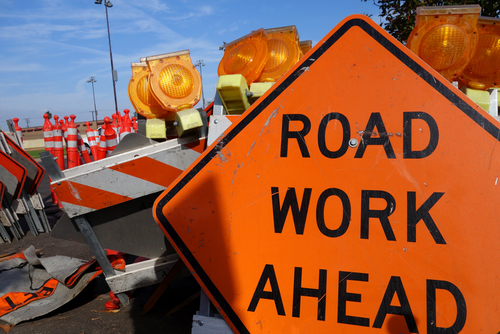
The majority of Americans voted in favor of investing in transportation projects on Nov. 5, with 270 approved initiatives that are expected to generate more than $9.6 billion in one-time and recurring revenue, according to the American Road and Transportation Builders Association’s Transportation Investment Advocacy Center (ARTBA-TIAC).
And in a further show of support, voters re-elected office holders who supported transportation-related tax increases.
“We’re feeling like it’s a myth that voting for a gas tax increase means you won’t get re-elected,” said Carolyn Kramer, ARTBA-TIAC director. “Our research found that 92 percent of state legislators who voted for tax increases were re-elected between 2013 and 2018.”
ARTBA-TIAC, an advocacy and information organization to help citizens, legislators, organizations and businesses grow transportation investment at the state and local levels, followed elected officials who supported transportation tax increases and faced re-election over the course of five years. The group will continue to track re-election for those elected officials who support transportation initiatives, she said.
For the Nov. 5 election, the group tracked 305 state and local transportation-related initiatives on ballots in 19 states, of which 89 percent passed.
This year’s results continue a nearly decade-long trend of voters supporting transportation measures, Kramer said. Since 2010, voters have approved 81 percent of nearly 2,000 transportation investment ballot measures tracked by ARTBA-TIAC.
“Public support for increasing infrastructure investment continues to help local governments and the transportation construction community improve safety, mobility and overall quality of life for residents as projects get underway,” Kramer said.
The results of ARTBA-TIAC’s election analysis can be viewed in an interactive dashboard and be searched by state, mode, year and type of initiative.
“The ballot results are a great reminder infrastructure investment remains one of the few areas where red states, blue states, Republicans and Democrats can all come together,” ARTBA President Dave Bauer said. “It should also demonstrate to lawmakers on Capitol Hill that the public will be on board for the passage of a long-term bill that significantly boosts highway and transit investment at the federal level.”
Ohio voters approved 88 percent of the 154 measures on the ballot, including property tax increases. In both Ohio and Michigan, municipalities asked voters to renew property tax assessments to pay for road and infrastructure repair.
And in Maine, voters approved a $105 million bond measure for infrastructure projects by a 76 percent to 24 percent margin.
But it wasn’t all good news. In Washington state, voters passed a measure that caps car tax fees on vehicles at $30, eliminates 1.1 percent in excise taxes, abolishes certain fees charged by cities and limits valuation to the Kelly Blue Book value, rather than 85 percent of the manufacturer’s suggested retail price.
Officials there estimate the decision will cost the state nearly $4.3 billion in state and local transportation revenue over the next six years.
In response, Washington Gov. Jay Inslee has deferred all state transportation department projects not already underway and ordered transportation-related agencies to curb their non-critical spending. Legislators are preparing for budget cuts as well.
Several counties are expected to file legal challenges to the ballot measure in the coming weeks, Kramer said, as the ballot measure rescinds revenue that was authorized by voter-approved fees. That seems to be a new trend, she added. Tax-cutting advocates propose ballot initiatives to rescind fees or taxes after the legislation has been passed by voters.
Kramer said ARTBA-TIAC would continue following these trends for the 2020 election.